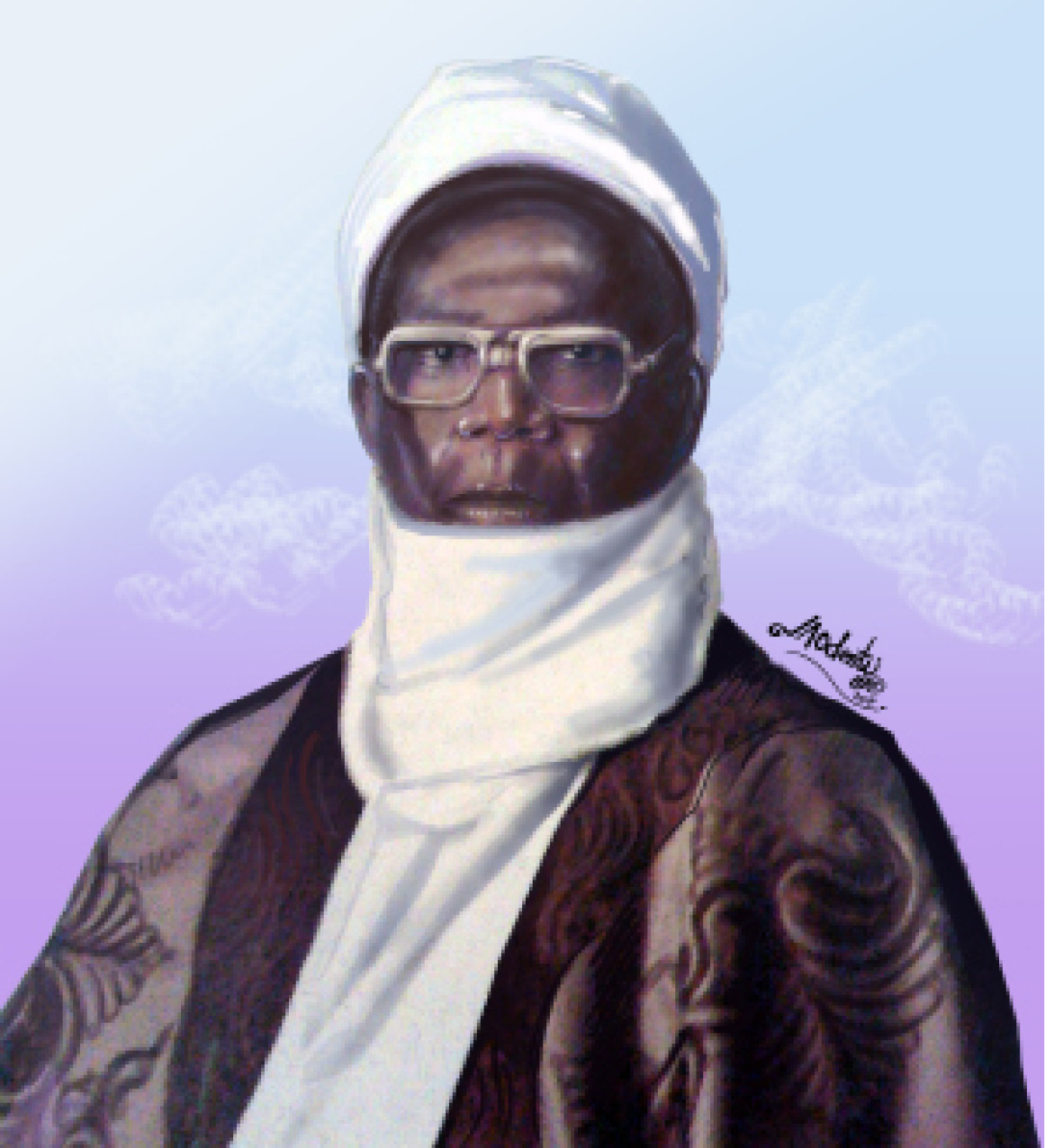Concentrated in the Central Senatorial District of Kogi State in the heart of the country, the Ebira people, with variegated dialects, sub groups and names, are also established in parts of Nasarawa, Edo, Plateau and Niger states. They are also found as the dominant indigenous ethnic groups in Abaji and a number of other towns and communities in the Federal Capital Territory, FCT.
While swathes and pockets of their subgroups and kindred settled along the path of migration, the Ebira Tao or, Ebira Okene (as they are fondly called), went furthest until they crossed the Niger- Benue River and thence on to their present day locations of Okene, Lokoja, Egany/Ajaokuta, Ihima and, Etuno(Igarra) among others.
By the exigencies of their migration, the Ebira Tao, before reaching their present homes, did not get settled long enough after generations of their westward movement for the evolution of a centralized political institution and authority. Rather, they were organized in communities of clans under clan heads supported by elders and spiritualists. However, resulting from exigencies of social, cultural, security and economic advancement, the rudiments of centralized political authority had begun to manifest before the advent of the British colonialists. What the invading colonial leaders did was therefore no more than consolidating a process already well nigh at a point of conclusion.
His Royal Highness, Alhaji Muhammed Sani Omolori (1919 -1996), reigned as the King, Ohinoyi of Ebira people between 1956 and 1996. He came after the reigns Omadivi of Abonika whose birth date is not known, but who reigned between 1904 and 1917, Ohinoyi Arudi Odano with a short-lived reign in 1917 and, Ibrahim Onoruoiza (1884-1964) who reigned from 1917 to 1954.
Unlike his predecessors who were installed because of their servility, service and obsequious loyalty to the colonialists, Ohinoyi Muhammed Omolori came to the throne on the spur of a popular uprising and protest by the people across the kingdom. It was an uprising against excruciating reign of the colonialists and the traditional ruling class: the instrument of exploitation, coercion and repression by the British officials.
He was selected by the young emerging elite who spearheaded the revolt and subsequent abdication and banishment of his predecessor in 1954. The young, largely missionary-educated leaders of the revolt resisted the moves by the British colonial rulers to yet again impose a candidate of their choice on the throne. Thus a stalemate that lasted for two years until the Ebira people had their way in the choice of their Ohinoyi in the person of Alhaji Muhammad Sani Omolori. Until then, he had relocated to Kaduna in the face of heightened threat to his life. He did not disappoint the attributes seen in him that informed the popular and consensual decision to have him as the king.
Ohinoyi Sani Omolori is cherished and loved by Ebira people, 23 years after his time, due to the remarkable and enduring footprints he left in the sands of their history. His reign of four decades, firstly, ushered in an unprecedented tranquility and stability with attendant harmony and peaceful coexistence amongst the divergent clans, social and economic development in all facets. Before his time, in spite of the atomistic nature of their culture and language, Ebira people were in a constant state of conflicts along the flimsiest of fault lines. That was in addition to the reign that saw several people going into jail and many others scampering for safety by running into voluntary exile.
With the background of a soldier in the British colonial army and one that was famed for bravery and gallantry in battles in the then Asian country of Burma (Myanmar) and elsewhere during the second World War, late Alhaji Sani Omolori ascended the throne of Ohinoyi as a well-travelled, experienced, polished and enlightened personality. His stint as the Administrative Secretary of the Ebira Traditional Council would also have exposed him to the intrigues, intricacies and crises of traditional leadership precedent to his emergence on the throne.
Omolori’s approach to leadership was a deft tapestry of the classical policy of carrots and stick. Even with all the awesome powers conferred on traditional rulers as embodiment of chief executive, judiciary officers and policing authorities by the colonial government, he was not dazed by the elixir of power. He chose to be genial and accessible, while yet radiating the regal aura of grandeur, even as he was firm in his grip on the levers of power and authority. While the Native Authority Police, (Dan Doka, Onupa) and the judiciary continued to perform their statutory responsibilities under his reign, he however curbed their use as agents of abrasive repression and coercion. The many other ubiquitous agents of terror that hitherto sprawled the land similarly fizzled out.
Taxation, law and order were central to the British colonial government with African traditional institutions serving as enforcement agencies through the indirect system of rule. Without clamping people into jail for tax defaults; without forcing people to go into self exile or live as fugitives for the slightest breaches of the law. Ohinoyi Sani Omolori was still able to meet up with responsibilities to the colonial government in terms of tax collection and maintenance of law and order in his domain.
By 1956/57, when he became the Ohinoyi, Nigeria was at the threshold of the politics of post independence. As a zone of convergence between the Northern and Western regions, Ebira land was almost inevitably, a theatre of fierce clashes between the Ahmadu Bello’s Northern People’s Congress, NPC, and Awolowo’s Action Group, AG. Most other traditional rulers openly pitched camps with either of the two political parties but, Ohinoyi Omolori, however opted to play the fatherly role by keeping the throne away from the turbulent waters of partisan politics.
That wisdom of neutrality shown by him greatly curbed the emerging catastrophic tide of violence in his domain. It also ensured that the throne retained its reverence across partisan divides. Thus, in spite of partisan differences and acrimonious relations between them, the Ohinoyi was yet able to individually, command respect and loyalty of the likes of Joe Ohiare, Joe Ohiani, George Ohikere, Abdul Kokori, Raji Abdallah and the other warring political gladiators of the time.
Consequent on the general atmosphere of peace and tranquility that prevailed, the long reign of Ohinoyi Omolori naturally, brought about unprecedented social and economic development across the length and breadth of his kingdom. His time, aptly, has been described by most chroniclers as the golden age in the anal of Ebira land.
Omolori’s reign witnessed for example, the emergence in 1962, of a modern hospital, the then Combined Hospital, (now Okene General Hospital.) His reigns also witnessed the coming of the Specialist Hospital as well as the School of Nursing of Obangede. Before 1962, the entire Ebira land had just one dispensary, (Asibiti Gomna) and a cottage hospital ran by the ECWA Missionaries at Kuroko. Similarly, educational institutions witnessed phenomenal expansion with the establishments of public primary and secondary schools as well as those owned by Christian and Muslim missionaries. There were hitherto, only three primary schools with one owned by the Native Authority and two others owned by the Christian missionaries. Within the four decades of his reign hundreds of primary schools and tens of post primary schools, public and private, sprang up in various communities and towns in Ebira land.
Under him, the restoration of harmony and unity amongst them back home, made it possible for a large number of sons and daughters of Ebira to gain prominence in the police, the armed forces and as politicians, ministers, diplomats and administrators in the First Republic and subsequent military administrations of post-independent Nigeria between 1960 and 1996 when Ohinoyi Omolori departed the world. He was a great leader, such that for generations to come his name will continue to be cherished and hailed. May the soul of late Ohinoyi of Ebiraland, Alhaji Muhammed Sani Omolori continue to rest in peace.
Ahmad is a Kaduna-based veteran journalist




